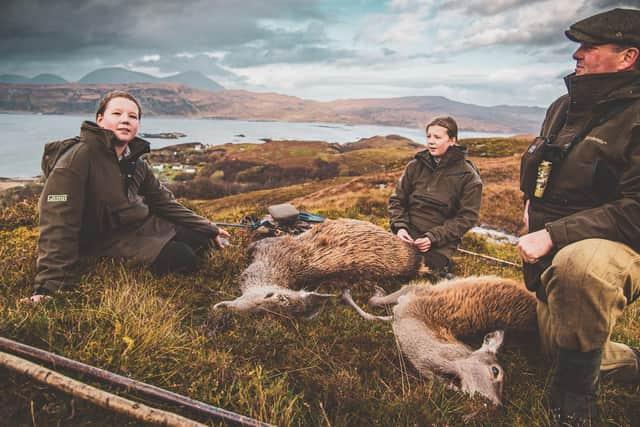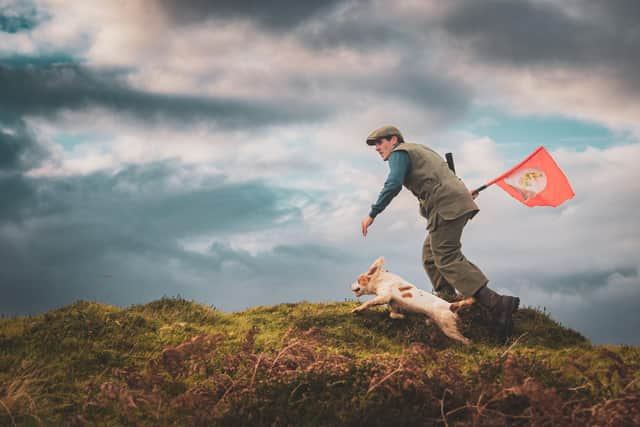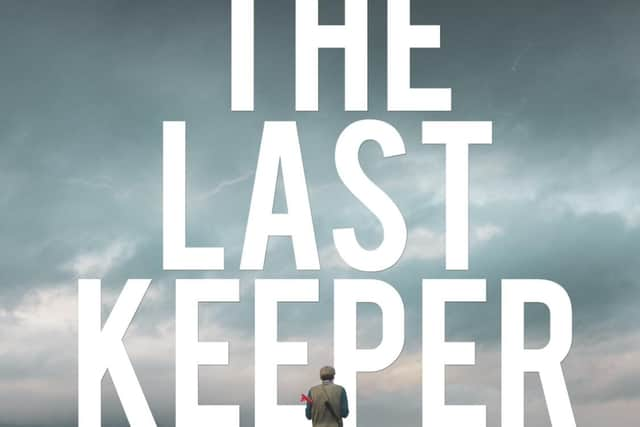The Last Keeper: New documentary explores ideologies behind the 'fight for control' for Scotland's Highlands
A new film documenting competing interests between rural communities, ‘rewilding’ groups and politicians over what is best for the land, wildlife and people in the Highlands is being released this spring.
In his new documentary, The Last Keeper, American film director Tom Opre has delved into the complex topics of grouse shooting, depopulation, muirburn, tree planting, and deer management which have become increasingly polarised in the face of a hardening climate and biodiversity crisis.
Advertisement
Hide AdAdvertisement
Hide AdIn a way that has not been done before for Scotland’s land management debate, the film attempts to represent the full range of ideological positions on the topic, from ‘rewilders’ to landowners to those traditionally working the land.


It comes at a time when rural Scotland is on the cusp of potentially seeing major changes to how the countryside is managed with upcoming legislation, including the Land Reform Bill, The Agriculture and Rural Communities (Scotland) Bill, and the Wildlife Management and Muirburn Bill – all due to be tabled this year.
Bringing conversations on these important rural issues to life, the film features interviews with people who have worked the land for, in some cases, centuries, including gamekeepers, crofters, landowners and farmers. Their views are shared alongside interviews with land campaigners, including former MSP Andy Wightman, and the heads of groups associated with ‘rewilding’ initiatives including Peter Cairns of Scotland The Big Picture, and David Balharry, chief executive of the John Muir Trust.
Mr Opre, who said he spent some 140 days exploring Scotland to gather material, said his aim was to hear all sides of the ongoing land management debate that remains highly polarised in the country today.
"As a film project, I worked hard to represent the opposing sides in this ideological conflict, while showing the impact on those fragile communities who are trapped in the crossfire and have most to lose,” said Mr Opre, whose previous work includes the award-winning film Killing The Shephard.


"This project presents an unprecedented array of voices; from land reformer Andy Wightman to Trees for Life to the John Muir Trust, whose views are explored at the same time as representing the fears and challenges facing traditional land use communities.
“That is the most interesting aspect of the film and has never been achieved before.”
Mr Opre said in his research, he explored the ongoing battle between the urban and rural environments, an issue he has noticed in other countries around the world from his filmmaking.
Advertisement
Hide AdAdvertisement
Hide Ad"What I really witnessed was this fight for control of the land because of all these opposing views on how to manage it be it from the city or from rural areas,” he said.


"You have people who want to restore the Caledonian forest but then others who have developed and are living in a culture that has lived without it for hundreds of years,” he said. “Including the deer.”
"But you also have politicians who I hear are Central Belt-focused and don’t understand the potential repercussions of their decisions on those in the rural areas.
"There are parallels I’ve seen with global conservation projects featured in my other films. Change is inevitable, and often necessary, but you cannot achieve a just transition without considering the indigenous people who are at the centre of the solution.”
The film comes as rural communities have said they feel their livelihoods are increasingly at risk because of the decisions made by those in government.


It has been widely reported that some rural workers, including those in the fishing and farming community, have likened some of the Scottish Greens-led policies to the Highland Clearances.
Last year, ministers were forced to scrap their plans for no fishing zones – Highly Protected Marine Areas (HPMAs) – to be enforced in 10 per cent of Scotland’s waters due to an uproar from coastal communities protecting their way of life.
And just last month, rural workers from the Cairngorms staged a demonstration calling for more of a say when it comes to imposing new Scottish Greens-led policies in the national park. This includes certain non-native tree-planting initiatives on heather moorland for carbon credit schemes, a topic that features heavily in The Last Keeper.
Advertisement
Hide AdAdvertisement
Hide AdThere are increasing concerns in Scotland over large parts land being used or bought up to plant trees to sell carbon credits. In the film, Andy Wightman goes as far as saying this should be illegal.
Mr Opre explores this debate further in the documentary by looking at whether some of the trees should be planted where they are in the first place, particularly non-native ones.
The film includes regular comments from retired ecologist Dr James Fenton who draws on scientific evidence pointing to there being an expected, natural decline of woodland at this stage.
Mr Opre said: “One of the most glaring things I saw while making this film was non-native tree planting on heather moorland which the UN has previously said is an ecosystem of concern.
"The UK also holds the majority of the world’s heather eco systems, and most of that is in the Highlands.
"It should be illegal what some people are doing when it comes to non-native tree planting in certain areas of the Highlands. Politicians need to take a serious look at this.”
While the film presents a detailed debate, bringing together different sides of the ongoing conversations around land and wildlife management, it does not shy away from drawing attention to the welfare of those who can be impacted by the conflict day-to-day.
The piece features an interview with chief executive of the Gamekeepers Welfare Trust Helen Benson who talks about the mental wellbeing of those who work in rural jobs, revealing that, in the UK, up to two a week take their own life.
Advertisement
Hide AdAdvertisement
Hide AdThe film, which was funded by non-profit organisation Shepherds of Wildlife Society, is due to be premiered in Edinburgh in April. Mr Opre said it has been considered by more than 100 festivals across the globe, 50 per cent of which have accepted it in their festival programmes.
Comments
Want to join the conversation? Please or to comment on this article.